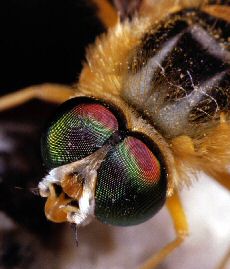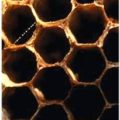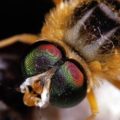
The sudden disappearance of honeybees (colony collapse disorder) in many parts of the country might be related to pesticide exposure, says Washington State University entomologist Walter Sheppard. The pesticide is question has been used for the past ten years to combat parasitic mites that plague the bees.
“To keep bees, especially on a commercial level, beekeepers have needed to use some sort of chemical to control these mites,” explained Sheppard. “Normally, Varroa mites will kill a colony within two years if they’re not treated.”
But Sheppard thinks the pesticide might be accumulating in the waxy honeycomb, which honeybees reuse each season to rear their young in. If the pesticide builds up in the wax, he speculates that over time it could reach a concentration which harms the bees as well.
The study should shed light on the potential role of pesticides in colony collapse by the end of the year. Given that honeybee pollinated crops are worth more than nine billion dollars a year to the American economy, there will no doubt be many farmers waiting on the results.
Related articles:
Bee Boffins Abuzz With Theories About Honeybee Decline
Cell Phones To Blame For Deserted Bee Colonies?
Global Extinction Crisis Poorly Understood
Birds Ain’t Doing It, Bees Ain’t Doing It, And Biodiversity Is The Victim








Comments are closed.